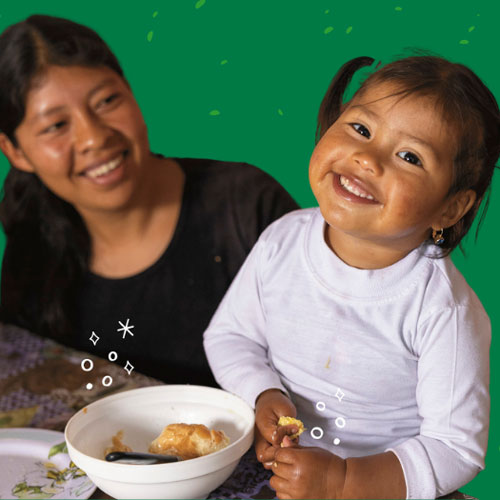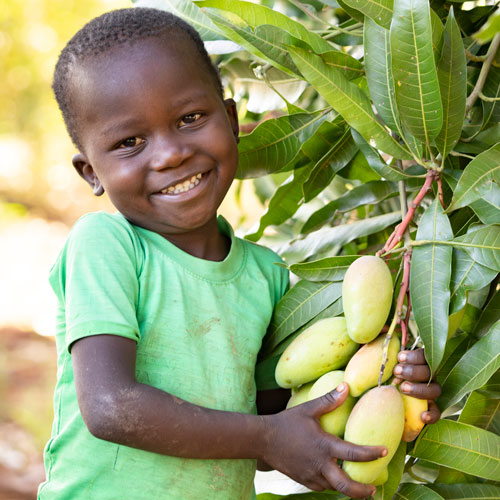Sydney, Australia, 21 May 2014: Access to clean water is one of the biggest obstacles to education facing girls in rural Ethiopia, child-focused aid organisation ChildFund Australia said today.
This follows a World Bank report released last week which finds that girls with little or no education are far more likely to be married as children, suffer domestic violence, live in poverty, and lack a say in household spending or their own health care.
In Ethiopia, less than half (47%) of young women aged 15-24 can read and write.[1] This is largely due to the fact that most domestic chores fall to mothers and their female children. In some rural areas, it is not uncommon to spend six hours a day collecting water for the family, making it impossible for girls to attend school on a regular basis.
ChildFund interviewed women and girls in a rural village in the Silti Woreda district of Ethiopia about the impact of access to water on their lives. They described not only the physical burden of carrying water over long distances ÛÒ each jerry can weighs around 20kg when full – but the impact on their health and education.
“It’s mostly the children who fetch the water,” said Fetya, 14. “Even though we travel three hours to get it, it’s still not pure water. We get diseases like diarrhoea and typhoid.”
Manuhlshal, 16, said: “Most of the time I’m the one to fetch water for the family. Once school is finished, around 3pm, I go and fetch water. It takes me about one-and-a-half hours. I have to wait in a long line once I get there. If I have homework or studies, I can’t do it. If we had water near our home, I’d have more time to study after school. If we had water, I could focus on education. I could achieve more.”
A powerful new video produced by ChildFund follows 12-year-old Aleyka on her daily journey to collect water. Aleyka spends an hour each morning before school fetching dirty river water for her family’s cleaning needs, and another three hours each night walking along rocky paths, dusty roads and a busy highway to the nearest town to collect fresh water for cooking and drinking.
“I spend four hours walking to fetch water every day,” Aleyka said. “I get so tired from the journey. It takes up all the time I have to study. I’d rather be reading. If we had water in our village, even just a 10-minute walk away, we could do so much. My family could keep clean and not have to bathe with dirty river water. We could have a garden in the back with carrots and greens. Best of all, I’d have time to study.”
Nigel Spence, CEO of ChildFund Australia, said: “Access to clean water is one of the biggest issues affecting children in rural Ethiopia. Women and girls bear the primary responsibility for water collection, which means a huge part of their day is spent walking great distances simply for their families to survive. It prevents girls from attending school and focusing on their studies, which means they are more likely to be stuck in a cycle of poverty.”
ChildFund is raising funds to build a gravity-fed water system in Aleyka’s village that will provide a constant source of clean, fresh water within minutes of people’s homes.
This will not only increase access to safe drinking water but improve sanitation and hygiene. Currently, most children in the village are forced to wear dirty clothes for long periods as it is difficult to spare water for washing. Many children don’t have the opportunity to wash their faces and eyes daily, and as a result they are highly exposed to preventable diseases like trachoma.
Mr. Spence said: “Water projects that reduce the time children spend collecting water have much wider impacts than just providing safe drinking water. Access to clean water leads to improved health and hygiene as children are less exposed to disease. It improves education as children have more time to attend school and study. It also improves nutrition and food security by enabling families to grow crops to feed their children and generate an income.”
Join the conversation online using #cleanwaterethiopia
WATER FACTS: ETHIOPIA
- 43.4 million people in Ethiopia don’t have access to safe water.
- Collecting water takes 30 minutes or longer for almost half (48%) of the rural population.
- In rural households women are 10 times more likely than men to fetch the water for the household (71% versus 7%). Female children under the age of 15 are three times more likely than male children to fetch water (12% versus 4%).
- Progress is being made. Today in Ethiopia, more than half of the population (58%) has access to an improved source of drinking water, compared to 14% in 1990. Ethiopia is on track to achieve the Millennium Development Goal target related to water, where 62% of the population should access improved sources of drinking water by 2015.
Statistical information sourced from: Ethiopia Demographic and Health Survey 2011; Ethiopia Gender Survey: a study in seven regions; Ethiopia MDGs Report 2012; Progress on Drinking Water and Sanitation 2012; United Nations – Water and Gender








